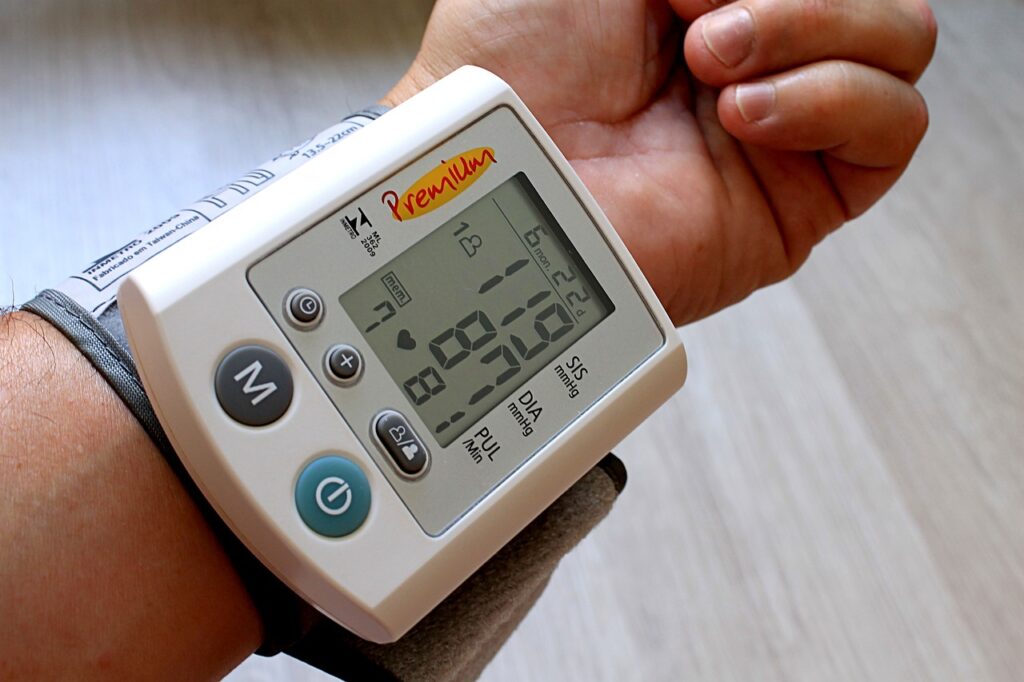Let’s talk about healthy blood pressure and how to get there.
Maintaining proper electrolyte balance is crucial for regulating blood pressure, as well as overall health and physical performance. Electrolytes are minerals that dissociate in water to create electrically charged particles known as ions. These ions play important roles in various bodily functions, including muscle function, hydration, and pH balance.
Calcium, magnesium, potassium, and sodium are four electrolytes that play a particularly important role in regulating blood pressure.
Calcium is essential for muscle function and is also involved in the regulation of blood pressure. It works together with magnesium to relax and contract blood vessels, which helps to regulate blood flow and pressure.
Magnesium is another important electrolyte that helps to regulate blood pressure. It helps to relax blood vessels and promotes healthy blood flow. Magnesium is also involved in the production of ATP (adenosine triphosphate), which is the body’s main source of energy.
Potassium, yet another important electrolyte, plays a role in regulating blood pressure. It helps to relax blood vessels and can lower blood pressure by reducing the amount of sodium in the body. Potassium is also involved in muscle function and is essential for proper heart function.
Sodium is an electrolyte that plays a key role in regulating blood pressure. It helps to maintain the balance of fluids in the body, which can help to regulate blood pressure. However, an excess of sodium can cause an increase in blood pressure, so it is important to consume sodium in moderation.
Athletes, or those looking to lose weight and get into better shape, often need to pay special attention to their electrolyte balance, as physical activity and sweat loss can lead to an imbalance. It is important for athletes to replenish electrolytes lost through sweat to maintain proper hydration and physical performance.
One way to maintain proper electrolyte balance is through a healthy diet that includes a variety of fruits, vegetables, and other sources of electrolytes. For example, calcium can be found in dairy products, leafy green vegetables, and nuts. Magnesium is found in whole grains, nuts, and leafy green vegetables. Potassium is found in bananas, avocados, and sweet potatoes. Sodium can found in salt, either iodized table salt, sea salt mined from different parts of the world, or in certain foods.
In addition to a healthy diet, it is also important for athletes and those looking to get into better shape to pay attention to their hydration levels. Dehydration can lead to an electrolyte imbalance, which can cause a variety of symptoms such as fatigue, muscle cramps, and headaches. Drinking plenty of water and electrolyte-rich beverages, such as sports drinks, can help to maintain proper hydration and electrolyte balance.
It is also important to note that electrolyte imbalances can sometimes be caused by underlying health conditions, such as kidney disease or diabetes. If you are experiencing symptoms of an electrolyte imbalance or are concerned about your electrolyte balance, it is important to speak with a healthcare provider.
In conclusion, maintaining proper electrolyte balance is crucial for regulating blood pressure, as well as overall health and physical performance. Calcium, magnesium, potassium, and sodium are four electrolytes that play a particularly important role in regulating blood pressure. A healthy diet that includes a variety of sources of electrolytes, along with proper hydration, can help to maintain proper electrolyte balance.
High blood pressure is a VERY SERIOUS MEDICAL CONDITION, and if you are suffering from it, it is crucial that you get it under control as quickly as possible.
Let me know if this helps, and if you need me, I’m easy to reach!
-Rob

